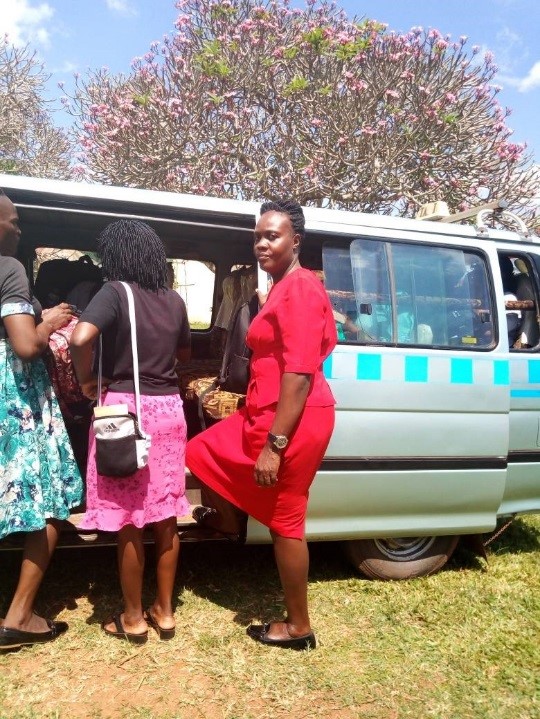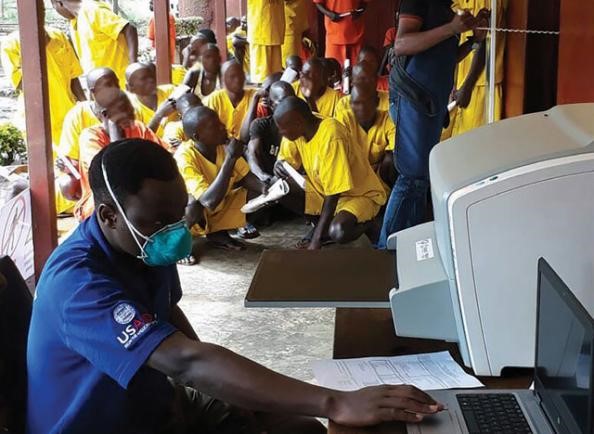
Looking in All the Right Places: Identifying TB Cases in Commuter Taxis in Uganda
By Rachael Alele Kabamooli, DTLS Rubaga District; Nejela Almohanna, URC; Haley Brightman, URC | October 11, 2018
 Rachael Kabamooli boards a commuter taxi in Kampala with an eye to track down unidentified TB cases
Rachael Kabamooli boards a commuter taxi in Kampala with an eye to track down unidentified TB cases
More than 40,000 tuberculosis (TB) cases go undetected each year in Uganda according to the Ugandan national TB prevalence survey. With this high burden of undetected TB, riding with others in cramped vehicles can be a health hazard. The USAID-funded Defeat TB Project, implemented by URC, realizes the importance of looking for TB cases in unlikely places, such as commuter taxis, to increase TB case detection.
Rachael Kabamooli, a Ugandan government District TB and Leprosy Supervisor for Rubaga Division in Kampala, was motivated to link a patient to TB testing during her daily commute in a matatu, or taxi. These commuter taxis carry up to 14 tightly packed passengers and are ubiquitous in urban areas of Uganda.
On her commute to work, Rachael noticed a woman boarding the taxi looking tired, weak, and coughing severely without covering her mouth. She approached the woman and spoke with her about how serious her cough sounded, convincing her to go to a laboratory. Her tests revealed she was co-infected with HIV and TB and she immediately received counseling and was started on TB medication and linked to anti-retroviral therapy.
This was not Rachael’s first encounter of this type. “I have come across a number of people coughing repeatedly on matatus,” said Rachael.
 TB screening at a Mukono District prison. Photo credit: Rosette Birungi, Defeat TB
TB screening at a Mukono District prison. Photo credit: Rosette Birungi, Defeat TB
Rachael attended the USAID Defeat TB Project (Defeat TB) launch meeting in January 2018. Discussions at the meeting made her realize that Uganda needs to be creative in increasing ways to seek out and detect missed TB cases.
Dr. Abel Nkolo, URC’s Chief of Party for Defeat TB, believes Rachael’s focus on seeking to detect TB symptomatic individuals in unlikely places within the community clearly demonstrates how heightened awareness and quick action can make an impact.
In less than a year of implementation, Defeat TB has carried out several strategies to increase TB case detection, including applying quality improvement for TB service provision at health facilities, targeting key high-risk populations for TB screening – such as prisoners, refugees, fishermen, and now taxi riders, screening for TB at all entry points of the health facility, and working closely with community health workers to target TB in communities.
Defeat TB has delivered quick results in increasing TB case detection in the focus districts of Kampala, Wakiso, and Mukono. From October 2017 to June 2018, 7,733 cases were detected in these districts, approximately 15% being additional cases detected after the start of project implementation. Such progress is motivation to continue finding more cases.
Rachael’s experiences highlight a substantial missed opportunity in the fight against TB and present an important call to action to develop innovative ways to seek out what would otherwise be missed cases of TB.